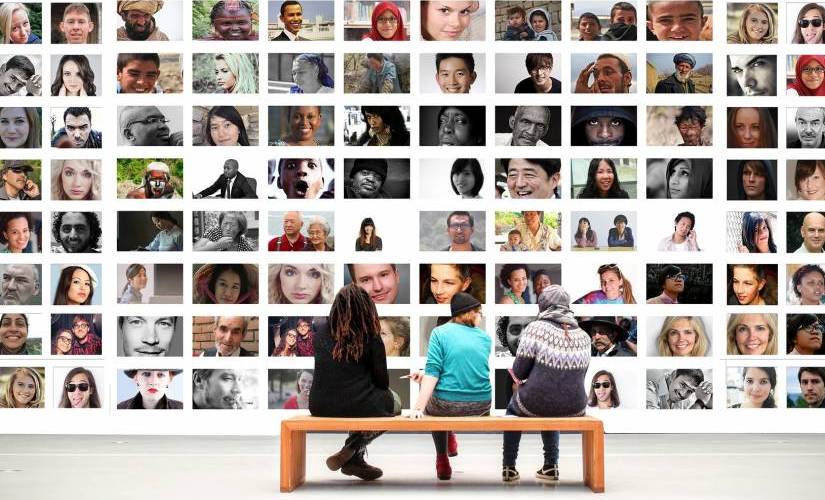As the world becomes increasingly more connected, tech companies and consumers alike find themselves negotiating difficult ethical territory. At first glance, the ethics of the connected world might seem like a trivial concern. Here are four ethical concerns for the connected world.
There are plenty of moral dilemmas and ethical issues going on in the world.
Surely the way that we interact with one another through technology is fairly low down on the list of serious worries? While it’s true that tech ethics are far less of a concern than some areas of life, such as political ethics and other matters, they still matter a lot. People’s use of technology isn’t without consequence. Increasingly, science is developing a body of knowledge on how technology has serious consequences for people’s physical and mental health.
In light of the serious impact that the connected world, and the apps and hardware that enable it, have on people, it’s vital to stop and consider the ethical issues at stake. Anything else is irresponsible.
Here are four of the key concerns that everyone involved in the connected world should be aware of.
The Problem of Privacy
These days people are becoming more and more aware of the privacy concerns and implications of our levels of connectivity.
Ironically, people are often guarded and private in everyday life, but when it comes to smartphones, social media, and apps, their caution goes out the window.
Several factors make the privacy aspect of connectivity ethics especially concerning:
-
Age.
People of all ages are using tech products such as tablets and smartphones. Even when certain services are age-restricted, it doesn’t always stop younger people from signing up to use them. This can lead to people disclosing sensitive information about themselves, which later comes back to haunt them.
This problem is exacerbated by the fact that tech companies often rely on users to verify their age. For both providers and users of services in our age of connectivity, the question of age and ethics needs to be at the forefront of privacy policy and practice.
-
Media.
One reason why privacy is particularly concerning these days is that laptops, phones, and tablets are capable of capturing higher quality media than ever before. Audio recordings, video footage, and photographs can be easily captured from any of these devices. This can lead to a high level of potential damage should privacy be violated.
This issue is worsened by the extensive access permissions that many apps seek, which users often accept without a second thought.
-
Informed Consent.
A key ethical principle in almost every area of life is informed consent. People deserve to be aware of what they are agreeing to, and the full implications of it. For many tech users, consent is given by agreeing to a privacy policy that few take the time to read or understand. Addressing this issue is the responsibility of both service providers and users.
Providers need to make their privacy information clear and understandable, while users need to take the time to understand what they are agreeing to.
As stories of gross violations of privacy become more prevalent, it’s widely hoped that consumers and providers alike will become more attuned to the importance of this ethical area.
Enabling A Balanced Life
As people increasingly rely on their connected devices for almost every area of work and leisure, it becomes harder and harder to switch off and take a break from connectivity.
This always-on nature has both benefits and drawbacks. On the plus side, it frees people up from the need to be in a particular place at a particular time. High definition video conferencing allows people to have quality interactions from wherever they happen to be.
The drawback of this constant connectivity is knowing where to draw a line and take a break. For example, should employees always respond to notifications, even out of hours? Is it ethical for app makers to design their products in a way that aims to grab someone’s attention and not let go?
Some of the things to think about when contemplating this aspect of connectivity ethics include:
-
Rules.
For companies that rely on the connected world to get their work done, it’s important to create unambiguous rules and expectations. It’s not enough to simply assume people will figure out the right level of connectivity for themselves. Leaving it to chance runs the risk of people being either too lax at replying or too focused on responding at all times.
Companies need to strike a balance between too much and too little connectivity and make expectations clear, so people don’t feel guilty for switching off sometimes.
-
Devices.
For many people, their digital lives are carried out via a single device. To give an example, people often use the same smartphone for their work and home activities. This essentially means that people are always at work! Using separate devices for work and home is one solution, but it isn’t always affordable or practical.
Instead, people can take a proactive approach in controlling their various notifications, setting clear boundaries to further their personal wellbeing.
-
Dependency.
Some people become physically dependent on their devices. If someone ends up in a position where they experience physical changes when not around their device, it’s a sign of a severe problem, such individuals need to take serious steps to reduce their device dependency, or it becomes impossible to achieve anything resembling a work/life balance.
The importance of a balanced life for mental health and societal happiness cannot be overstated. Some countries are putting policies in place to ensure our connected world doesn’t disrupt this balance. It will be interesting to see if others follow their lead in the years to come.
Data Sharing and Security
Perhaps the most significant ethical challenge in the 21st century is that of big data.
Many people are completely unaware that their digital life is often shared between different companies. Few people take the time to ensure that their privacy settings are set up in the way they want. Not checking privacy settings can lead to personal data being shared almost by default, without people being aware of the implications of this.
The issue of big data sharing is worsened by the fact that the same significant companies offer many of the most popular services and apps. When we’re in a situation that Facebook controls WhatsApp, Instagram, and Messenger, to give but a few examples, we need to think long and hard about how much we want these private companies to know about us.
For anyone with interest in the ethics of data sharing, these are some key areas to keep in mind:
-
Transparency.
When considering the issue of best practice for data sharing, it’s impossible to ignore transparency. This refers to the extent that companies are honest and open about the way they use the data they collect.
In used to be incredibly common for companies to refer to data use in very obscure and generalized language, preventing consumers from knowing exactly how their data would be used. These days, the leading ethical organizations are getting better at being transparent about their data usage.
-
Security.
When you come to realize that data is a valuable commodity, you understand the importance of securing it in the most effective way possible. Even though encryption is widely available and very powerful, many companies still don’t make use of cutting-edge solutions to data security.
This is often compounded by human error, with workers failing to implement the data security policies that organizations put in place. Regardless of how they occur, data security breaches can have a massively negative impact on a company’s reputation when they become known.
-
Compliance.
Depending on where in the world a company is based, there may well be serious legal and financial implications for failing to comply with data security rules and regulations. Perhaps the best-known example of this is the GDPR, or General Data Protection Regulation, introduced by the European Union.
Companies who fail to take GDPR seriously are risking a huge amount of their revenue. It will be interesting to see if other areas of the world introduce and enforce similar measures relating to data collection and use.
It feels as if the world is waking up to the importance of protecting the data that is collected about people and the way it is used. We can only hope so. The sheer scope of the data out there in our modern world means very bad things could happen if it were to fall into the wrong hands. It’s down to everyone to take this concern seriously and do what they can to address it.
Serving User Interests
In an ideal situation, any connected world service or app should be a win/win proposal. Users should experience value in return for what they give, whether that happens to be data or money, and companies should profit while respecting the needs of their users.
There have been numerous situations where companies have behaved deceptively or otherwise unethically, leading to severe consequences.
Some of the key ethical concerns relating to serving users’ best interests in our connected world include:
-
Power.
One common reply to people who raise concerns about if users’ interests are being served by big tech is that no-one is being forced to use services. If people don’t like them, they are free to not use them. That may be true in theory, but in practice, things are a little less clear.
The financial and marketing might of big companies means there is a serious power imbalance between them and their users. This imbalance needs to be taken into account when considering where ethical responsibility lies.
-
Addiction.
Increasingly, the people responsible for creating the connected world apps and devices we all rely on are speaking out. Creators from the world of Facebook, among others, have revealed how notifications are intended to be as compulsive as possible, and mechanisms such as pull to refresh are based directly on principles taken from the world of gambling.
Creators of tech need to think long and hard about how ethical it is to aim to addict users. Reconsideration of the metrics used to measure success might be needed to achieve this aim.
-
Politics and Truth.
Big tech abusing its power has more severe consequences than young people being hooked on video games. No less than truth and the validity of democracy are at stake. There are countless examples of malicious actors using technology to achieve their nefarious aims by unethical means.
Elections are manipulated, ethnic tensions are stoked, and medical misinformation becomes rife. Companies such as Twitter are waking up to their responsibilities in this area, and it will be interesting to see if others follow in their footsteps.
Ultimately, it’s down to us as individuals to educate ourselves about the way we use connected world services. We shouldn’t be naive. None of us are under the illusion that big companies are our friends or acting with our best interests in mind.
Before you start using an app or device, you need to think long and hard about whose interest you are serving. Are you benefiting, or are you serving the interests of other people? This is no trivial matter. The wellbeing of us all and our societies are truly at risk here.
The Ethical Way Ahead
Like any complex challenge, there is no easy answer to the modern ethical minefield that our connected world represents. As bad as things might seem at times, it’s important to keep perspective and not lose hope. Overall, most people would agree that the positive impact of the connected world outweighs its downsides, even if it doesn’t always seem that way.
Governments and consumers alike are waking up and ensuring that measures are put in place to monitor and regulate the way that tech companies operate.
All of us need to consider the ethics of our tech use and act accordingly, regardless of if we are service providers or users. The stakes are simply too high to do anything else.




